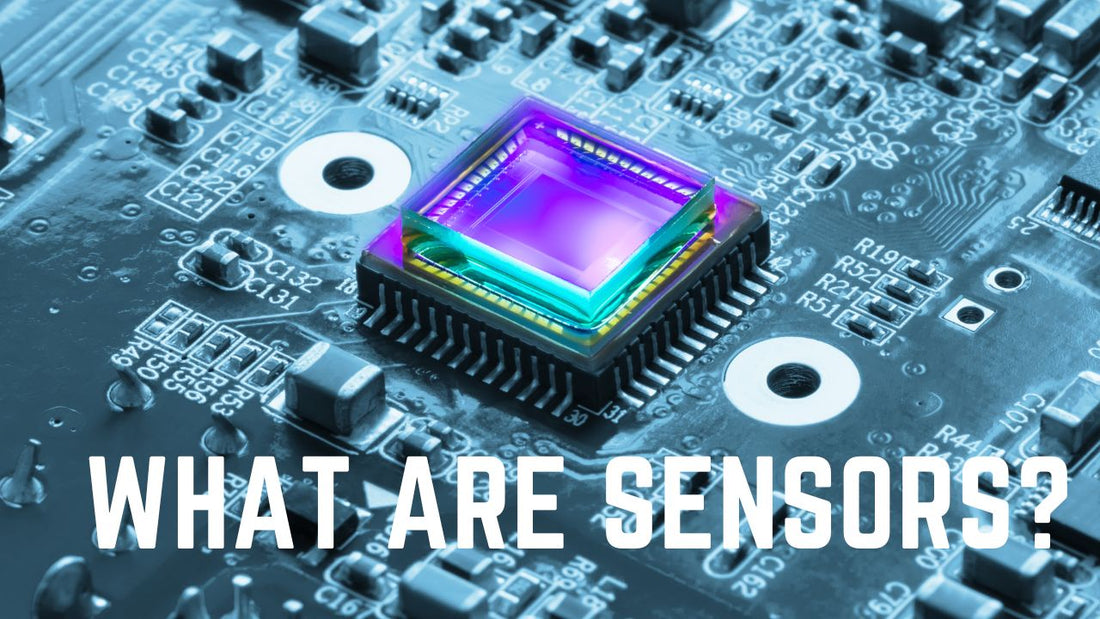The Crucial Role of Sensors in Electronics: Transforming the Physical into the Electrical
In electronics, sensors play a pivotal role that bridges the physical and digital worlds. These devices have the remarkable ability to convert various physical parameters such as light, temperature, pressure, and more into electrical signals. This transformation is the cornerstone of their significance, enabling the acquisition of vital information from the environment.
Types of Sensors:
Light Sensors:
- Light sensors, also known as photodetectors or photocells, are designed to measure the intensity of light in their surroundings. They find applications in cameras, automatic lighting systems, and solar panels. Photodiodes and phototransistors are common types of light sensors that convert light into electrical current.
Temperature Sensors:
- Temperature sensors are crucial for monitoring and controlling temperature in various settings. Thermocouples, thermistors, and infrared sensors are examples that can convert temperature variations into electrical signals. Industries ranging from healthcare to manufacturing heavily rely on temperature sensors for precise measurements and control.
Pressure Sensors:
- Pressure sensors, or pressure transducers, are employed to measure force per unit area. They find application in diverse fields such as automotive, aviation, and healthcare. Capacitive, piezoelectric, and strain gauge pressure sensors are examples of devices that can convert pressure changes into electrical signals.
Proximity Sensors:
- Proximity sensors detect the presence or absence of an object within a certain range. Infrared, ultrasonic, and capacitive proximity sensors are commonly used in applications like smartphones, robotics, and industrial automation. These sensors convert the proximity of an object into electrical signals, enabling precise detection.
Motion Sensors:
- Motion sensors, including accelerometers and gyroscopes, are essential in devices like smartphones and gaming controllers. They convert physical movement into electrical signals, enabling devices to respond to changes in orientation and acceleration.
Importance of Sensors in Gathering Information:
Real-time Monitoring:
- Sensors enable real-time monitoring of environmental conditions. This is crucial in applications such as weather forecasting, where data on temperature, humidity, and atmospheric pressure is continuously collected for accurate predictions.
Automation and Control:
- In industrial settings, sensors are integral to automation and control systems. They provide feedback that allows machines to adjust parameters dynamically, optimizing processes for efficiency and safety.
Environmental Conservation:
- Environmental sensors, including those monitoring air and water quality, contribute to the ongoing efforts for environmental conservation. By gathering data on pollutants and conditions, sensors aid in the development of strategies to mitigate environmental impact.
Healthcare Applications:
- Sensors play a vital role in healthcare, from monitoring patient vital signs to diagnostic imaging. For instance, temperature sensors help regulate incubator conditions for premature infants, while biosensors detect specific biological markers for disease diagnosis.
Energy Efficiency:
- In smart buildings, sensors contribute to energy efficiency by regulating lighting, heating, and cooling systems based on occupancy and environmental conditions. This not only reduces energy consumption but also lowers costs and environmental impact.
In electronics, sensors emerge as indispensable components, serving as the eyes and ears that connect the physical world to the digital realm. By converting an array of physical parameters into electrical signals, sensors empower applications across diverse industries. From healthcare to manufacturing, from environmental monitoring to consumer electronics, the importance of sensors cannot be overstated. As technology continues to advance, sensors will undoubtedly play a central role in shaping the future of innovation and progress.

